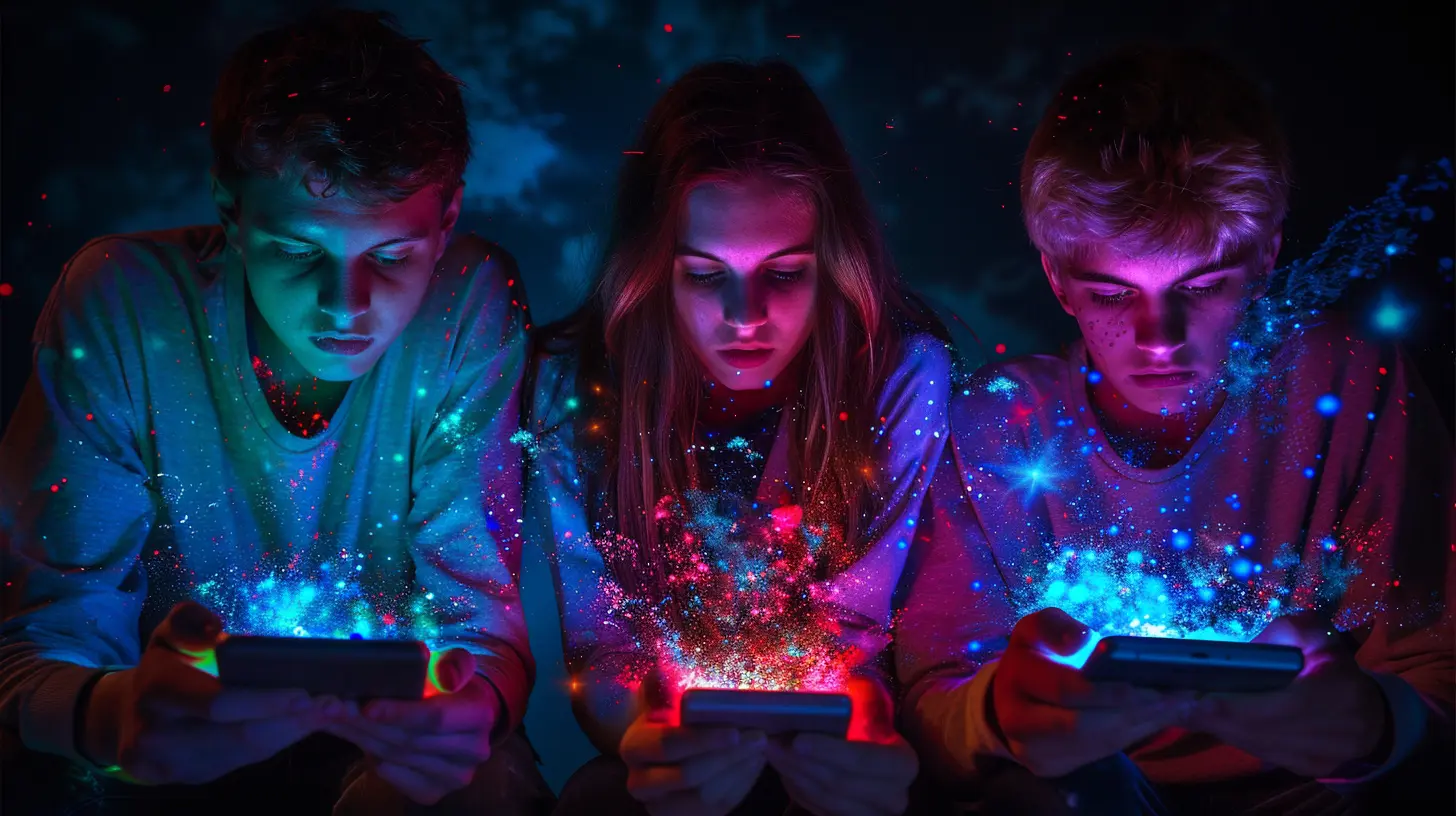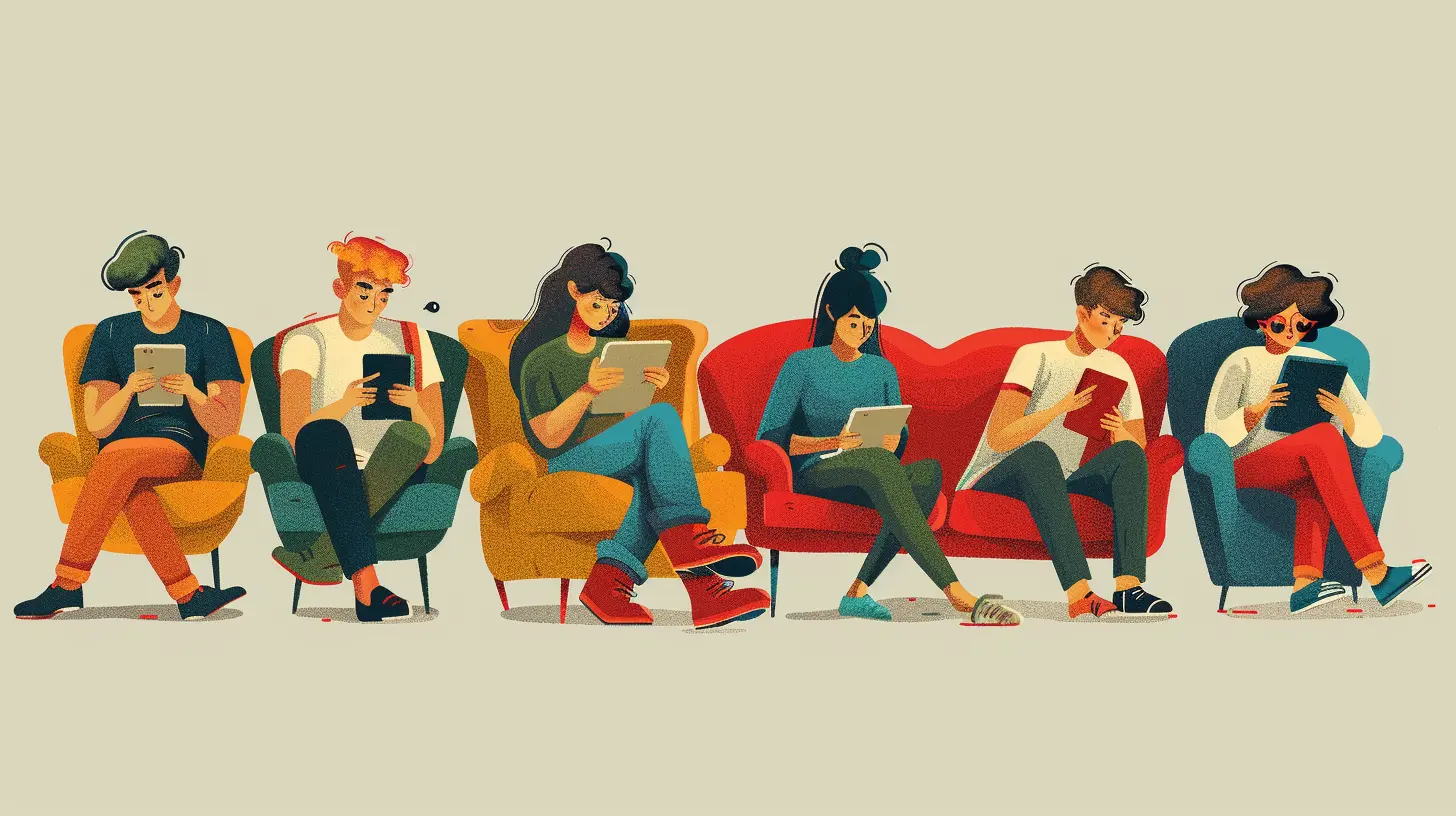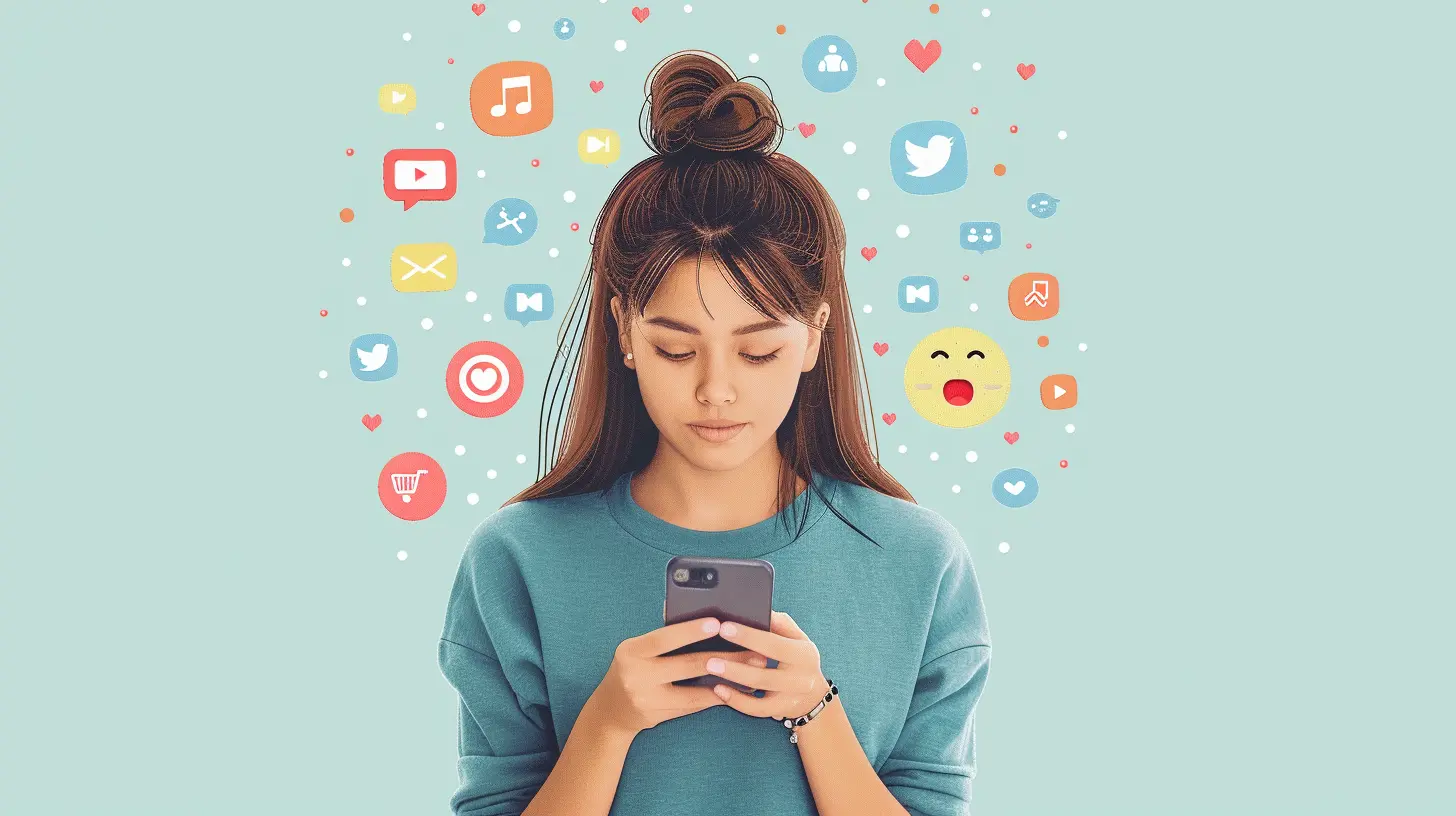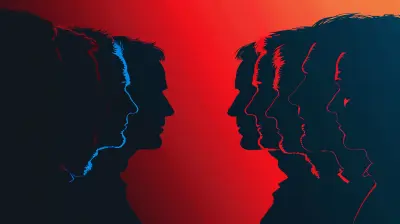Social Media Addiction: Recognizing the Signs and Taking Control
23 September 2025
Let’s be real — most of us can’t remember the last time we went a full day without checking our phones. Instagram, TikTok, Twitter (or X if you’re trying to keep up), Facebook — we scroll, we swipe, we double-tap. Rinse and repeat.
Social media is everywhere. It keeps us connected, informed, and entertained. But here's the thing — what happens when the swiping doesn’t stop? What happens when social media starts to take over our time, our mood, and even our sleep?
Welcome to the world of social media addiction. It's more common than you think, and spoiler alert: you're not alone.
In this article, we're going to dig deep into what social media addiction really looks like, how to recognize it in yourself or someone you care about, and most importantly, how to take back control — without giving up the benefits that social platforms can offer.

What Is Social Media Addiction Anyway?
Let’s break it down. Social media addiction is not just spending a lot of time online. It’s when your use of social platforms starts interfering with your daily life — school, work, relationships, sleep, your mental health — all of it.Think of it like this: Imagine social media as a dessert. Tasty, fun, and totally fine in moderation. But eat nothing but cake all day, every day, and it’ll start messing with your health. Same idea. When social media becomes your go-to for every emotion — boredom, anxiety, sadness, even happiness — it starts eating away at your mental space.
And just like with any addiction, it's not just about time spent. It's about the emotional hold it has on you.

The Psychology Behind Social Media Addiction
Why is social media so addictive? Simple: it's literally designed to be.Every notification, every like, every share — it all triggers a little dopamine hit in your brain. That’s the same feel-good chemical involved in gambling and drug addiction. Wild, right?
Social media platforms study your behavior to show you exactly what keeps you engaged. Ever noticed how your feed seems to know exactly what you’re thinking? That’s not magic — it’s algorithms working overtime to keep you hooked.
And over time, your brain starts associating these apps with pleasure and validation. That’s when things can get a little dicey.

Signs You Might Be Addicted to Social Media
Not sure if you’ve crossed the line from healthy use to addiction? Here are some red flags to watch out for:1. You Check Social Media First Thing in the Morning
If your hand automatically reaches for your phone before you even brush your teeth, it might be time to pause.2. You Feel Anxious or Irritated When You’re Not Online
Going for a walk without your phone feels... uncomfortable. You keep thinking about what you’re missing out on. That fear of missing out (a.k.a. FOMO) kicks in hard.3. You Lose Track of Time While Scrolling
You open Instagram to check one notification, and suddenly — boom — it’s been two hours. Your coffee’s cold, and it’s dark outside.4. You Use Social Media to Escape Reality
Whenever you're upset, bored, or stressed, you find yourself turning to social media for a quick distraction instead of dealing with what's really going on.5. Your In-Person Relationships Are Suffering
You’re spending less time with loved ones, or you’re mentally checked out even when you're physically present. If your real-life connections are taking a hit, that’s a big warning sign.6. You Constantly Compare Yourself to Others
You’re always measuring your life against filtered versions of other people’s lives. And it’s making you feel "less than" — less attractive, less successful, less happy.If you found yourself nodding at more than a couple of those, it might be time for a social media reality check.

Why This Matters: The Impact on Mental Health
Let’s talk about the real cost of too much social media.Sure, it may seem harmless. But chronic overuse can seriously mess with your mental health:
- 🚫 Low Self-Esteem – Constant comparison leads to feeling inadequate.
- 😓 Anxiety and Depression – Excessive use is linked to increased levels of anxiety and depressive symptoms.
- 🛌 Sleep Disruption – Scrolling late into the night throws off your body’s natural sleep rhythms.
- 😞 Reduced Attention Span – Endless content makes it harder to focus or stay present.
- 🧠 Addictive Behavior – Your brain becomes wired to seek the next digital hit at the expense of real-life satisfaction.
It’s ironic, isn’t it? The very platforms designed to connect us can end up making us feel more isolated than ever.
Taking Control: Steps to Break Free
First off, take a deep breath. Breaking the cycle doesn’t mean you have to give up social media forever. It’s about using it mindfully, instead of letting it use you.Here’s how to gradually take back your power:
1. Track Your Usage
Start by getting honest with yourself. How much time are you really spending on social media?Most smartphones have screen time trackers — check yours. You might be surprised (or mildly horrified). Awareness is the first step toward change.
2. Set Usage Limits
Give yourself a daily time limit for each app. There are plenty of tools that can help you with this — like Screen Time (iOS), Digital Wellbeing (Android), or third-party apps like Forest or Freedom.Start small. Even shaving off 30 minutes a day makes a difference.
3. Create “Phone-Free” Zones
Designate certain places or times as social-media-free. Think: no phones at the dinner table, in your bedroom, or during family hangouts. It's a powerful way to reconnect with the real world.4. Turn Off Non-Essential Notifications
Seriously, this is a game-changer. Notifications are like tiny digital sugar cubes — each one a hit of dopamine. Turn off the noise. You’ll be shocked at how much calmer your mind feels.5. Replace the Habit
Instead of reaching for your phone, try something else. Read a book, go for a walk, pick up a hobby, journal, paint — anything that brings joy without a screen.Remember: It’s not just about cutting down; it’s about filling that space with something meaningful.
6. Be Intentional with Your Social Media Use
Ask yourself: Why am I opening this app?If it’s just muscle memory or boredom, pause. Try checking in with yourself before you scroll.
Also, unfollow or mute accounts that make you feel bad. Your mental health is more important than keeping up appearances.
7. Talk About It
You’re not the only one struggling with this. Open up to friends or family. Consider talking to a therapist — many specialize in digital well-being and tech addiction.Connection — real, human connection — is the antidote to online isolation.
Creating a Healthier Relationship with Social Media
Ultimately, social media isn’t the enemy. It’s a tool. And like any tool, it can be helpful or harmful depending on how we use it.Building a healthier relationship with it means checking in with yourself regularly. Are you using it to connect or escape? To express or compare? To share or perform?
Try this: When you use social media, do so with purpose. Comment with kindness. Follow people who inspire you. Create instead of consume. And most importantly, put the phone down when you need to protect your peace.
When to Seek Professional Help
If social media addiction is starting to impact your daily functioning — work, school, relationships, or mental health — it might be time to reach out to a mental health professional.Therapists can help you get to the root of the addiction, build better coping skills, and create a plan to unplug in a way that feels doable and sustainable.
Remember: Asking for help isn’t a weakness — it’s one of the strongest things you can do.
You Deserve More Than a Screen
Here’s the truth: You’re worth more than likes, shares, followers, or filters.You deserve the kind of life that feels good offline — the laughter that doesn’t need to be posted, the memories that live in your heart (not your story), the peace that comes from being present.
Social media can enhance your life, but it should never define it.
So, the next time you catch yourself mindlessly scrolling, stop. Breathe. Look around. The real world is still here. And it’s waiting for you.
all images in this post were generated using AI tools
Category:
AddictionAuthor:

Gloria McVicar
Discussion
rate this article
1 comments
Ardent Pace
Social media addiction is the modern-age siren call—luring us into endless scrolls. Recognizing the signs is the first step to reclaiming our time; after all, life happens beyond the screen.
October 14, 2025 at 4:03 AM

Gloria McVicar
Absolutely! Acknowledging the pull of social media is crucial for regaining control over our time and experiences beyond the screen. Thank you for your insight!


